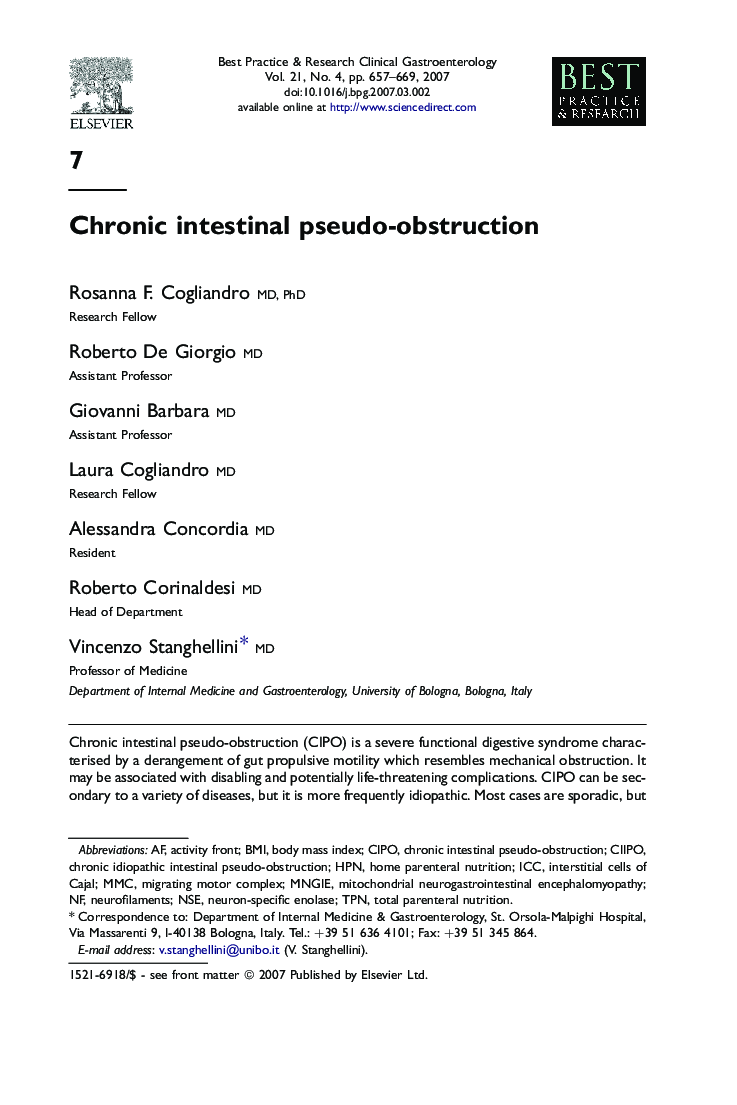| Article ID | Journal | Published Year | Pages | File Type |
|---|---|---|---|---|
| 3254811 | Best Practice & Research Clinical Gastroenterology | 2007 | 13 Pages |
Chronic intestinal pseudo-obstruction (CIPO) is a severe functional digestive syndrome characterised by a derangement of gut propulsive motility which resembles mechanical obstruction. It may be associated with disabling and potentially life-threatening complications. CIPO can be secondary to a variety of diseases, but it is more frequently idiopathic. Most cases are sporadic, but familial forms have also been described. Based on histological features CIPO can be classified into three major entities: neuropathies, mesenchymopathies, and myopathies depending on the predominant involvement of enteric neurones, interstitial cells of Cajal (ICC) or smooth muscle cells, respectively. Mitochondriopathies may be responsible for a syndromic form of CIPO, i.e. mitochondrial neurogastrointestinal encephalomyopathy. Management of CIPO involves nutritional, pharmacological and surgical therapies, but the long-term outcome turns out to be poor in the vast majority of cases. The main pathogenetic and clinical features of the syndrome, together with current management recommendations are reviewed in this chapter.
